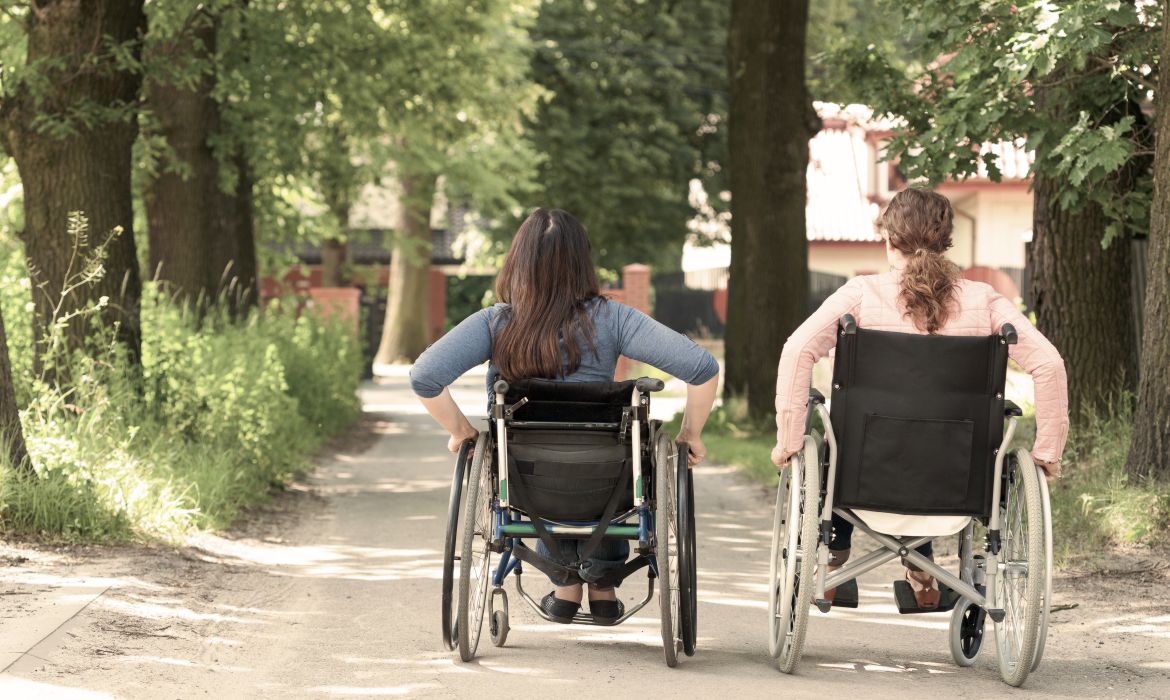
Chronic pain, illness and disability now affect more people than ever before. Counselling can also be a means of coping with physical & emotional symptoms of loss and pain. Caring for someone with a physical disability or illness can be a very challenging responsibility & emotional draining.
People with chronic problems can face lots of pain, distress and have limits and circumstances brought on by the illness or disability. There are different kinds of chronic illnesses, those which if managed well, don’t cause a lot of discomfort and distress, illnesses where there is little to relieve stress and pain, and others which are progressive developing new disabilities or eventual death. Illness such as muscular dystrophy or multiple sclerosis create continued deterioration in a person’s health. At different phases in these illnesses, there are new emotions and situations to contend with which can cause tremendous amounts of distress, not to mention the varying levels of physical pain.
Any illness and disability can be hard to accept and adjust to, people who are suffering can feel angry, sad/depressed, afraid/terrified, frustrated, confused, helpless, inadequate, embarrassed, ashamed, a burden and numb these are just some of the emotions someone with a disability or chronic illness can have. Long-term painful thoughts and emotions can lead to alienation, loss of friends, more symptoms, feeling alone, and so on. It’s important to have lots of support in many areas, and means of coping if you’ve just developed a disability, or are having a hard-time coping with a disability you’ve had for years. These emotions vary greatly from person to person, but for most, the onset of a disability later in life creates dramatic changes in how to live and feel.
People who are disabled are regularly discriminated against. Many people who have a disability or develop an illness will experience anger, frustration, and depression from being part of a group being discriminated against. Things can be very hard, whether we’re talking about wheelchair entrances, promotions at work, strange looks, prejudice, or ridicule. Health problems that limit how much people can work or if they are able to work at all, can have a devastating impact on people’s finances. It’s important to me working as a counsellor to signpost and seek advice when necessary to ensure information and support is available to make sure people are getting the benefits available and don’t end up in financial crisis.
The financial side and the future are a worry and a concern for many people who have an illness and a disability. Nearly three in four people have money worries and their financial concerns are affecting their mental health and more than half said it was having an impact on their physical health also. When you care for someone you love, it is likely that your finances will be affected too. As well as paying for external care services and assistive equipment, ill health and disability generally increase household bills. You may also find you are paying for hospital parking charges and other transportation costs.
Finding a way to look positively at the future during illness or with disability, is often difficult. Counselling can provide the support and the guidance to help a person find many ways of altering their lives and mind set to adapt to their new future. This can often take the form of anything from finding a different career to making new friends and altering their social life to enable their lives to be fulfilled and motivated. I have worked with many clients who have changed their working careers and believe that they enjoy what they are doing now much more than if they had stayed in the same working environment. Others have found that although there are some physical things they can no longer do, they have developed other skills that they would never otherwise have thought of and now really enjoy.
Relationships often become difficult when struggling with ongoing illness and counselling can help both the sufferer of the illness and their partners and families adjust to changes that need to take place.
In the UK there are 6.5 million carers which equates to one in eight people. These are people who care for someone who is disabled, ill, older or suffering from a mental health condition. It is estimated that this number will rise Carers UK foresee a 40% increase in the number of carers by 2037. This is partly because our society is living longer with illness or disability. Caring may be required round the clock, or it may only be required a few hours a week. Regardless of how much time is spent on caring for others, being a carer can impact your life in a huge way this is especially true if you feel the impacts of caring are affecting your mental or physical health. When we care for a partner, a family member or a friend a huge amount of our time is spent on others. This allows little time to focus on ourselves.
Illness and Disability Counselling
Counselling offers you an opportunity to talk about your thoughts and feelings, any fears, hopes and difficulties you may be experiencing in your role as a carer in a safe, confidential environment. It allows you the time and space to think about your needs. This can help you make sense of your emotions and develop coping mechanisms for issues that cannot be resolved.
Other Counselling Services

School and College Counselling
Quality AssuranceI am qualified Counsellor / Psychotherapist11 years experience working with and counselling children and...
Read More
Individual and Group Supervision
I am a qualified Clinical Supervisor who offers individual and group supervision to professionals ranging from students in...
Read More